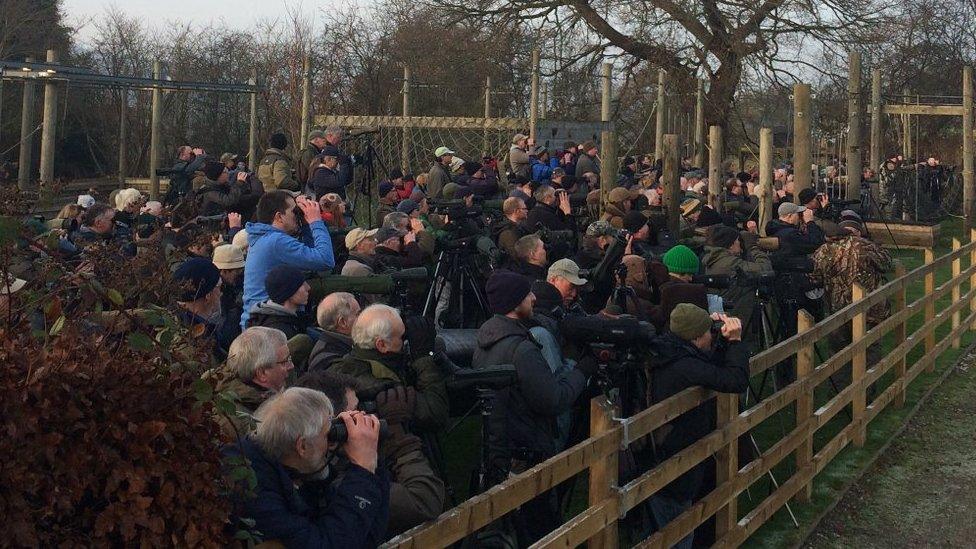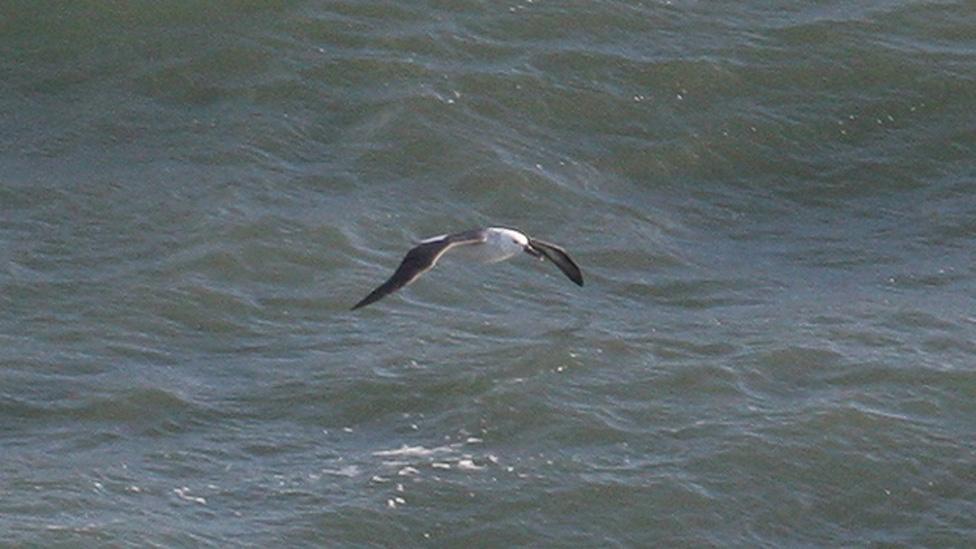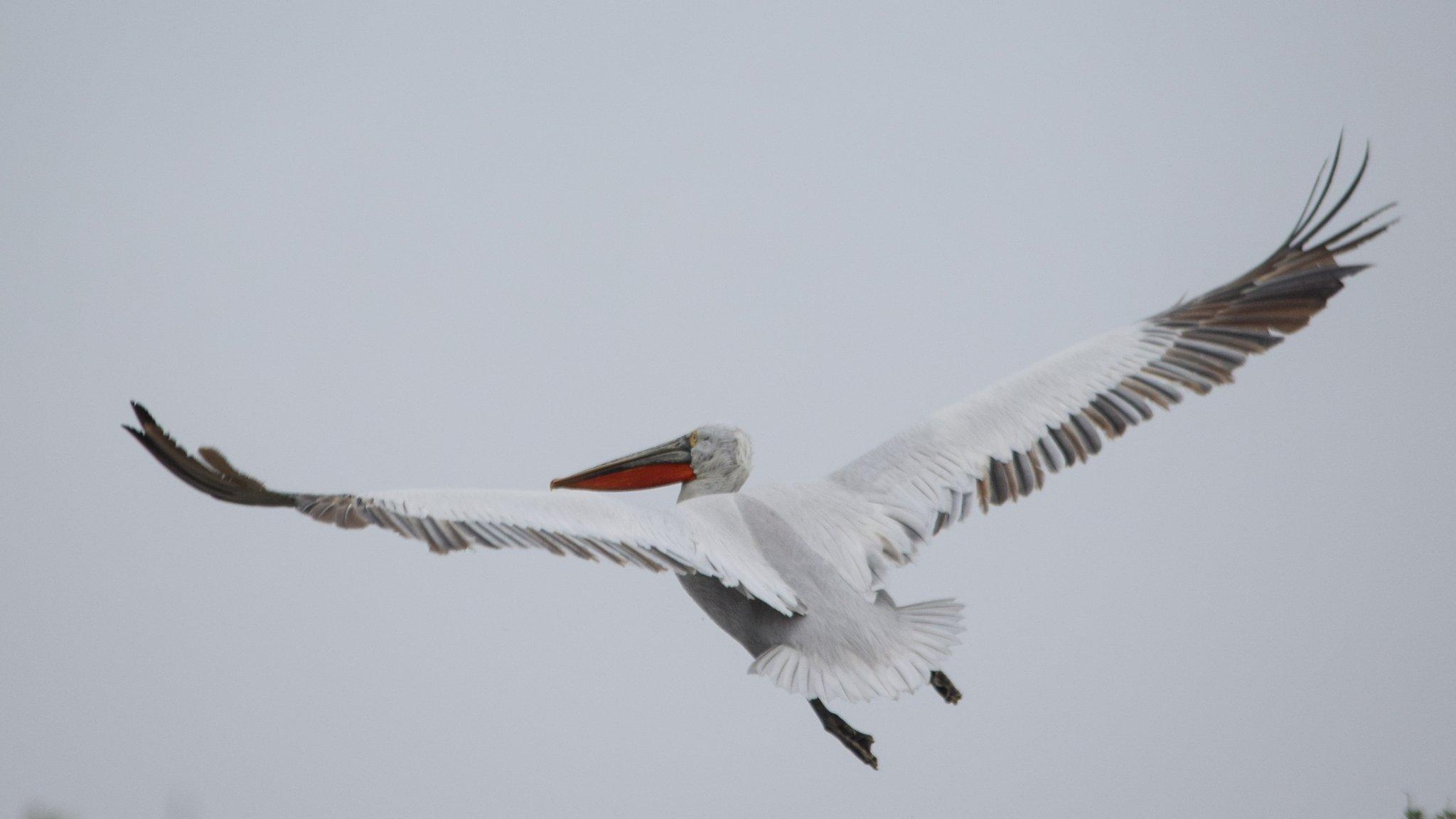Birdwatchers in Beeley to see 'very rare' dusky thrush
- Published
Twitchers flock to see rare bird
Birdwatchers have rushed to a village to catch a glimpse of a rare Asian bird.
The dusky thrush was seen at the Dukes Barn activity centre in Beeley, Derbyshire, on Monday by resident Rachel Jones whose subsequent social media post, external was spotted by twitchers.
Experts believe the bird, which breeds in central Siberia, was blown to Britain by "strong easterly winds".
Hundreds more people are expected to flock to the centre on Tuesday.

Dozens of birdwatchers have flocked to Beeley, Derbyshire, to see the rare bird
Colin Higginson, who is the manager of the centre - which is a charity that helps children with disabilities - said he has "never seen anything like it" and claimed one person had flown from Belgium to see the bird.
Birdwatcher Philip Garnett drove to the centre on Tuesday morning from Bolton to catch a glimpse of the bird.
He said: "I've been to Asia about 20 times and have never seen one. It's so rare."

Hundreds more people are expected to arrive at the Dukes Barn activity centre
Nick Brown, wildlife enquiries officer at the Derbyshire Wildlife Trust, said this is the 12th time the dusky thrush has been seen in Britain - though some twitchers claimed it is the 13th time the bird has been seen on these shores.
Mr Brown said: "There were a lot of easterly winds in October that blew a lot of birds that should have flown south, westward.
"Normally migration is in October and finishes in November, so this bird has probably been here for a while.
"The bird breeds in Siberia and they look like a redwing. It is about the size of a blackbird.
"It tends to eat berries. Once the berries dry up it'll probably just disappear after a while. It may try to go south as it has this instinct to go south in the autumn."

Wildlife experts said the dusky thrush normally breeds in central Siberia and was blown to Britain by "strong easterly winds"
- Published6 October 2016

- Published10 May 2016
